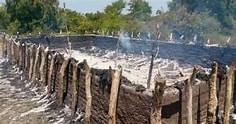Slander, unprofessional journalism shouldn’t be encouraged
Defamation is a false statement of fact that is harmful to someone’s reputation, and published “with fault,” meaning as a result of negligence or malice.
For one to give personal criticism against a public figure on national media is disturbing to the public no matter how they feel about the person who has been attacked.
For this case, the youngest country’s President was embarrassed on national media of a neighboring country; with whom they actually are a regional body called the East African Community (EAC).
A true apology does not need to be stressed or to come from pressure. The Kenyan media stations only deciding to apologize after numerous phone calls were made with the Kenyan government officials already indicates that the apology was not sincerely intended.
Defamation has an ill intention which is to damage the reputation of another. In the case for TV, it is termed as slander because the slanderous person intentionally conveys their message to ridicule or out of malice to misrepresent another.
Apology remarks only published on other media outlets but not the KTN official media site before Wednesday is questionable despite the fact their station aired out their intention as stated, “…that Standard Group shall offer an official retraction and apology to him on-air this Wednesday (yesterday morning) when the weekly program in which the mistake was made will run”.
Professional media personnel know when slander is being done, why and how to prevent it from happening.
Above all, let all those who are professional keep their expertise without having to bend to the false forces of what society deems normal and okay.



